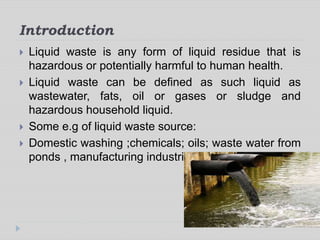See This Report about Reclaim Waste
See This Report about Reclaim Waste
Blog Article
Reclaim Waste Can Be Fun For Anyone
Table of ContentsHow Reclaim Waste can Save You Time, Stress, and Money.The 5-Minute Rule for Reclaim WasteWhat Does Reclaim Waste Mean?The Main Principles Of Reclaim Waste Some Known Facts About Reclaim Waste.
Residential sewer waste refers to the waste and items from a domestic septic storage tank. The appropriate management and disposal of domestic sewer waste need fluid waste to be transferred to a sewage therapy plant where the appropriate methods and equipment are applied to purify and dispose of waste.
Business waste often consists of possible risks, such as combustible materials or a mix of liquid and strong waste products, and needs an advanced and comprehensive disposal procedure. The disposal of business waste normally entails the purification of waste before transport to ensure safe and proper disposal. Hazardous waste is created from by-products and runoff of commercial procedures and production.
This type of waste can not make use of the very same sewage management transport or processes as septic or business liquids. The hazardous waste administration procedure calls for the assessment and screening of liquid waste prior to it undergoes the disposal procedure (liquid waste disposal). Runoff waste is the fluid waste that originates from runoff and excess stormwater in very inhabited locations or cities
Overflow waste can trigger contamination and flooding if not handled properly. Find out more concerning sewer cleaning and waste administration. Guaranteeing correct waste monitoring can stop calamities and minimize ecological injury. Both individuals in residential settings and specialists in commercial or production industries can gain from comprehending the procedures and regulations of liquid waste administration.
The 6-Minute Rule for Reclaim Waste
Get in touch with PROS Solutions today to find out about our waste administration and disposal solutions and the appropriate methods to care for the liquid waste you generate.
(https://www.blogtalkradio.com/reclaimwaste1)Do you recognize what takes place to your water when you end, flush the bathroom or drain pipes the cleaning equipment? No? Well, it's worth understanding. This so-called 'wastewater' is not just an important source but, after therapy, will be launched to our land, waterways or the sea. Used water from bathrooms, showers, bathrooms, kitchen area sinks, washings and commercial processes is referred to as wastewater.

water utilized to cool down machinery or tidy plant and tools). Stormwater, a form of wastewater, is runoff that streams from farming and urban locations such as roofing systems, parks, yards, roadways, courses and gutters right into stormwater drains pipes, after rain. Stormwater moves unattended directly to neighborhood creeks or rivers, ultimately reaching the ocean.
What Does Reclaim Waste Do?
In Queensland, the majority of wastewater is dealt with at sewage treatment plants. Wastewater is moved from residential or industrial sites through a system of sewage systems and pump terminals, understood as sewerage reticulation, to a sewage therapy plant.
The Division of Natural Resources recommends regional governments concerning managing, operating and keeping sewage systems and treatment plants. In unsewered areas, city governments may call for homeowners to install individual or house sewer treatment systems to deal with residential wastewater from toilets, kitchen areas, washrooms and washings. The Division of Natural Resources authorises the use of household systems when they are shown to be effective.
In some brand-new communities, treatment of some stormwater to eliminate clutter, sand and crushed rock has actually begun making use of gross contaminant catches. Wastewater treatment happens in 4 stages: Gets rid of solid matter.
Uses little living microorganisms understands as micro-organisms to damage down and get rid of remaining dissolved wastes and great particles. Micro-organisms and wastes are included in the sludge.
Not known Details About Reclaim Waste
Nutrient removal is not available at all sewer therapy plants due to the fact that it calls for pricey specialized tools. Clear fluid effluent produced after treatment may still have disease-causing micro-organisms - liquid waste disposal.

The majority of wastewater streams into the sewage system. Under the Act, regional governments carry out authorizations and permits for ecologically pertinent activities (Ages) entailing wastewater releases that could have a local influence.
Reclaim Waste Things To Know Before You Get This
Otherwise, examples are taken for lab analysis. Usually many tests are needed to establish the levels of each of the different contaminants such as oils, hefty steels and chemicals in water. Surveillance provides factual info concerning water high quality and can verify that licence conditions are being fulfilled. The info acquired with tracking supplies the basis for making water high quality decisions.
Report this page